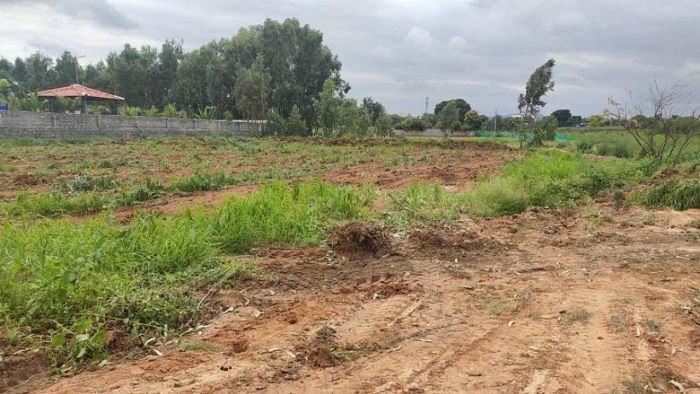
The amendment to the Karnataka Land Reforms Act, 1961 in 2020, that allowed those without agricultural background to buy farmland, has resulted in a significant increase in rural property registrations.
According to the data accessed by DH, revenue from rural property registrations has gone up by close to 67% from 2020-21 to 2022-23, clearly indicating an inclination among people to buy agricultural land.
According to the data from the Department of Stamps and Registrations, revenue from stamp duty and registration fee from property registrations in rural areas in 2020-21 stood at Rs 4,214.46 crore and increased to Rs 6,941.38 crore by 2022-23.
Sources attributed the increase to the amendment introduced in 2020, stating that rural property registrations now account for nearly 50% of the overall purchases.
“Earlier, rural property registrations accounted for only 30% of the registrations. Owing to liberalisation, the number of registrations has increased and rural registrations now contribute close to 50% of the registrations,” a senior official said.
While such purchases increase revenue, a few officials and farmer leaders expressed concern over food security.
“The development has resulted in a reduction of area under cultivation and will eventually pose a threat to food security. The majority of those who are investing in agricultural land around Bengaluru are not opting to continue agriculture. Many of them use it either for recreational purposes or plan to develop layouts and hence real estate is booming,” said Kalvamanjali Ramu Shivanna, youth president of the Karnataka Rajya Raitha Sangha.
Sources from the Department of Stamps and Registrations also said the number of farmhouses and other recreational properties had increased in the vicinity of Bengaluru. Data showed that the revenue through registrations in Bengaluru Rural had nearly doubled between 2020-21 and 2022-23.
However, experts who worked closely with the previous government opined that it was too early to determine the impact. “Many states, including Tamil Nadu, never had such restrictions and food security was never affected. Liberalisation may, in fact, encourage more people to take to farming. Also, industries that come up at a few places will provide job opportunities,” said a senior IAS officer who did not want to be named.
There have been extensive discussions on the amendment and according to sources, the new Congress government in the state is also looking at repealing the amendment based on demands by the farmers.